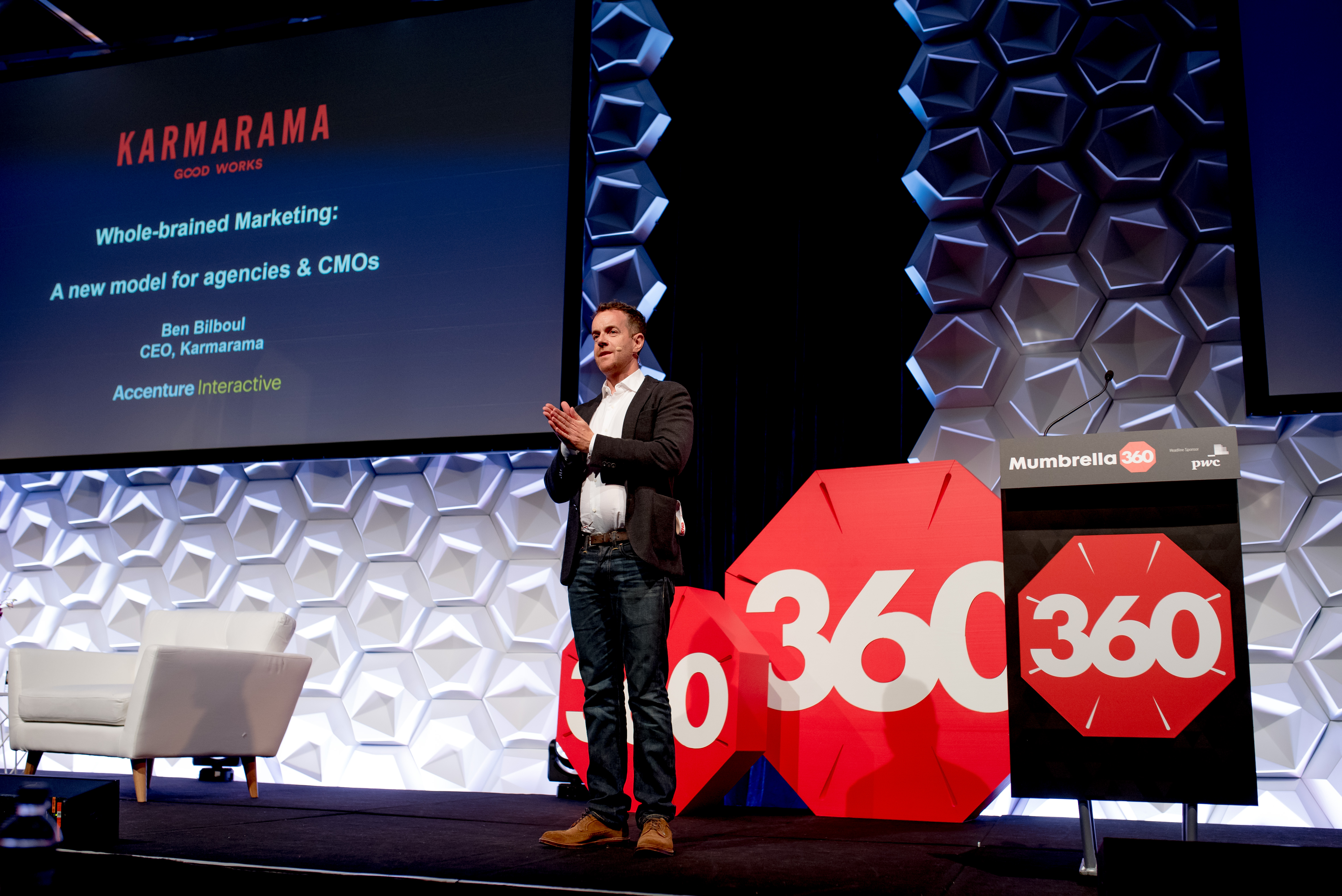Brands and agencies urged to lift their game to exploit a ‘new era of marketing and creativity’
The boss of UK creative agency Karmarama has heralded a new age for creatives and marketers, but also warned that advertising needs to lift its game in an era of ad blocking, poor customer experiences and growing consumer apathy towards brands.
Speaking at Mumbrella360, Ben Bilboul claimed marketers – in the UK at least – are increasingly being elevated to boardroom level as they take responsibility for hard, as well as soft metrics.
It is a move that should be welcomed by marketing departments and agencies, he said.


